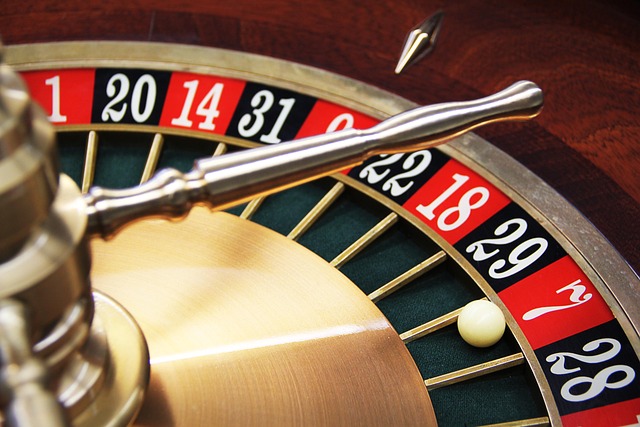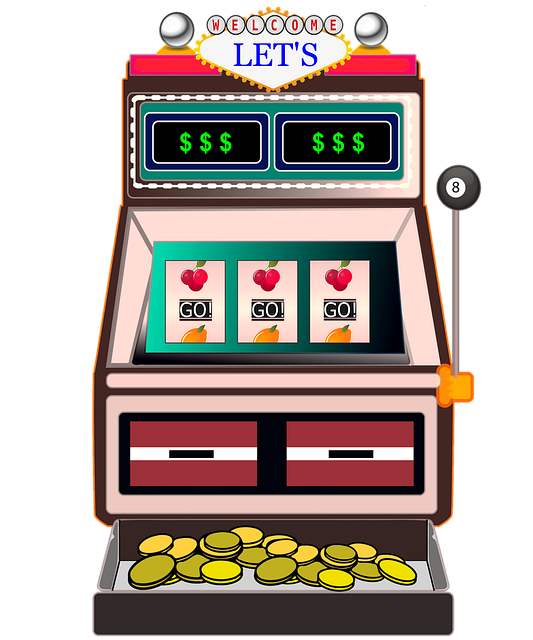Is Futures Trading Gambling? An In-Depth Analysis
Author: Jameson Richman Expert
Published On: 2025-09-13
Prepared by Jameson Richman and our team of experts with over a decade of experience in cryptocurrency and digital asset analysis. Learn more about us.
Futures trading often sparks heated debates regarding its similarity to gambling, especially among newcomers or traders who lack a comprehensive understanding of market mechanics. The rapid pace of trading, high leverage, and the potential for quick, substantial profits can superficially resemble betting or gambling activities. However, a detailed and nuanced analysis reveals that futures trading, when approached with proper knowledge, strategic planning, and disciplined risk management, is fundamentally a systematic investment activity rooted in analysis rather than mere chance. This article aims to explore the core differences, the associated risks, strategic best practices, and the critical importance of ongoing education, illustrating how futures trading can be transformed into a disciplined and profitable financial pursuit rather than a game of luck.

Understanding Futures Trading: Mechanics, Leverage, and Risks
Futures contracts are standardized agreements between parties to buy or sell an underlying asset—such as commodities (oil, gold, agricultural products), currencies, or cryptocurrencies—at a predetermined price on a future date. These contracts are traded on regulated futures exchanges like the CME (Chicago Mercantile Exchange), ICE (Intercontinental Exchange), or Binance Futures, which provide transparency, liquidity, and standardization. These exchanges mitigate counterparty risk through clearinghouses, which guarantee contract performance, thus creating a safer trading environment.
One of the main attractions of futures trading is leverage. Traders are required to deposit a margin—often a small percentage of the total contract value—to control a much larger position. For example, a margin requirement might be only 5%, allowing a trader to control a position worth 100 times their margin deposit. While leverage amplifies potential profits, it equally magnifies losses, making futures inherently high-risk instruments. A minor adverse price movement can wipe out a trader’s margin or lead to a margin call, where additional funds must be deposited to maintain the position.
The volatile nature of futures markets is influenced by macroeconomic indicators—such as employment reports, inflation data, and GDP figures—as well as geopolitical events, monetary policy decisions, and investor sentiment. These factors can trigger rapid and unpredictable price swings, often within seconds or minutes, emphasizing the importance of employing sophisticated risk management tools and strategies. Unlike speculative gambling, successful futures trading involves analyzing these variables systematically to forecast probable market directions.
Market participants utilize a range of analytical techniques, including technical analysis—studying patterns, trend lines, and indicators such as RSI, MACD, and Fibonacci levels—and fundamental analysis, which considers macroeconomic trends, geopolitical developments, and central bank policies. Combining these approaches helps traders develop probabilistic strategies, where risk-reward ratios are carefully balanced rather than relying on luck or gut feelings. Awareness of market psychology and sentiment is also essential in making informed trading decisions.
The Core Difference: Skill and Strategy vs. Chance
While both futures trading and gambling involve risking capital with the potential for loss, their fundamental differences are rooted in methodology. Gambling is largely luck-based, involving outcomes driven by chance—such as roulette spins, lottery draws, or sports bets—without reliance on analysis or systematic risk controls. In contrast, futures trading is a skill-based activity that, when executed properly, leverages research, analytical tools, and disciplined strategies to tilt the odds in the trader’s favor over the long term.
My experience has shown that early misconceptions often lead traders to believe that predicting market movements is about intuition or guesswork. Over time, I realized that consistent success depends on structured approaches—such as defining clear entry and exit criteria, setting logical stop-loss and take-profit levels, and maintaining detailed trading journals for performance analysis. These practices help prevent impulsive, emotion-driven decisions that often turn trading into gambling. Recognizing that markets are inherently probabilistic systems fosters a mindset where losses are viewed as inevitable parts of learning and growth, rather than failures or bets placed on chance alone.
Strategies to Foster Discipline and Minimize Gambling Tendencies
Transforming futures trading from a reckless gamble into a disciplined activity requires a comprehensive strategic framework. Here are key practices I recommend to cultivate a systematic and responsible trading approach:
- Develop a Detailed Trading Plan: Create a structured set of rules governing your trading activities—this includes defining specific criteria for entering and exiting trades, risk thresholds, position sizing, and performance benchmarks. A well-crafted plan minimizes emotional interference, ensures consistency, and provides a framework for evaluating success over time.
- Implement Robust Risk Management: Use stop-loss orders to cap potential losses and take-profit orders to secure gains at predetermined levels. Position sizing should be proportionate to your account size, typically risking only 1-2% of your capital per trade. Employing the Kelly Criterion or fixed fractional methods can optimize risk-reward balance.
- Prioritize Continuous Education: Markets are dynamic and ever-evolving. Staying informed through reputable courses, webinars, industry blogs, and mentorship enhances your understanding of leverage, margin requirements, and psychological resilience. Resources like Binance’s margin trading guides (see detailed margin fee guide) and comprehensive trading courses provide essential insights that develop your analytical skills.
- Choose Reputable Platforms and Diversify: Use established, regulated exchanges such as Binance, MEXC, Bitget, and Bybit. These platforms offer advanced trading tools, educational resources, and security features that help reduce operational risks. Diversifying across different markets, assets, and platforms also mitigates systemic risk and safeguards your capital from platform-specific issues. Always use official registration links to ensure security: Binance, MEXC, Bitget, and Bybit.

The Essential Role of Education, Psychology, and Responsible Trading
Continuous education is the foundation of responsible futures trading. The markets are influenced by a confluence of variables—macro-economic data, geopolitical tensions, monetary policies, technological advancements, and investor psychology. Engaging with high-quality educational resources, such as in-depth platform reviews (comprehensive platform analyses) and detailed guides on leverage and margin (Bybit futures guide), helps deepen your understanding and refine your strategies.
Equally critical is mastering trading psychology—controlling emotional responses such as fear, greed, impatience, and overconfidence. Discipline involves adhering strictly to your trading plan, avoiding impulsive reactions, and accepting that losses are part of the process. Building emotional resilience through experience, education, and mindfulness reduces tendencies toward reckless behaviors like revenge trading, overtrading, or chasing quick gains. Cultivating a rational, analytical mindset rooted in evidence and experience is essential for long-term sustainability and avoiding gambling-like pitfalls.
Conclusion: From Chance to Strategy – Building a Sustainable Trading Approach
In conclusion, futures trading is not inherently a game of chance. It becomes hazardous and resembles gambling only when approached with ignorance, impulsiveness, or inadequate risk controls. Conversely, when approached with comprehensive education, strategic planning, and disciplined execution, futures trading can serve as a legitimate, profitable investment avenue grounded in analysis and skill.
The primary distinction lies in the emphasis on knowledge, methodology, and psychological discipline. Successful traders systematically analyze markets, employ rigorous risk management practices, and commit to continuous learning. While risk remains an unavoidable aspect of trading, it can be managed effectively through careful planning, emotional control, and ongoing education. Responsible trading prioritizes strategic decision-making over luck, transforming futures from a game of chance into a disciplined craft rooted in expertise.
For those committed to becoming disciplined traders, leveraging reputable platforms, engaging with authoritative educational resources, and adhering to proven strategies creates the foundation for a sustainable, profitable trading career. Remember, futures trading is a skill-based activity—an art of informed decision-making based on market analysis and disciplined execution, not a gamble driven by chance.